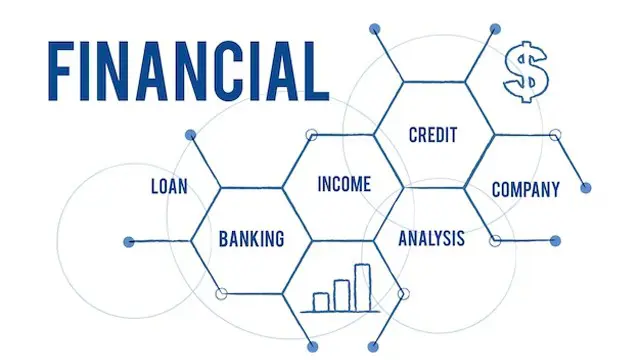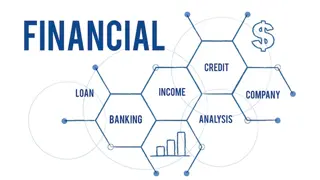
Financial Engineering
Updated study materials |* Free Certificate *|* Designed by Industry Experts *| Instant Access | 24/7 Support
Course Line On Demand
Summary
- Reed Courses Certificate of Completion - Free
- Tutor is available to students
Add to basket or enquire
Overview
Welcome to Financial Engineering, a comprehensive and engaging course designed to provide you with in-depth knowledge and practical skills in Financial Engineering. Throughout this course, we will explore various aspects of Financial Engineering and delve into its fundamental concepts, advanced techniques, and real-world applications.
Our primary objective in Financial Engineering is to equip you with a solid foundation in Financial Engineering. Whether you are a beginner or an experienced professional looking to expand your expertise, this course will cater to your needs and help you achieve your learning goals.
During our journey together, you will have the opportunity to:
- Gain a thorough understanding of the core principles and theories that underpin Financial Engineering.
- Acquire practical skills through hands-on exercises, projects, and real-world examples.
- Explore cutting-edge advancements and emerging trends in the field of Financial Engineering.
- Prepare for future opportunities, such as further education, career advancement, or entrepreneurship, in the field of Financial Engineering.
- Reflect on your learning journey, celebrate your achievements, and gain the confidence to excel in Financial Engineering.
By the end of Financial Engineering, you will have gained a comprehensive understanding of Financial Engineering and developed the skills necessary to succeed in this dynamic field. Whether you choose to pursue further education, enter the job market, or embark on entrepreneurial ventures, this course will lay a strong foundation for your future endeavours.
We are excited to have you join us on this educational journey, and we look forward to helping you unlock your full potential in Financial Engineering. Let's get started!
Why should you choose Course Line?
When it comes to quality education and professional development, Course Line stands out as one of the most prestigious learning providers. As a certified institution by UKRLP & CPD Group, we have a proven track record of excellence, having successfully taught over 20,000+ students and counting.
Curriculum
-
Lecture 1: Introduction to Financial Engineering 05:00
-
Lecture 2: Financial Theories and Strategies 08:00
-
Lecture 3: Financial Instruments 04:00
-
Lecture 4: Types of Financial Analysis 07:00
-
Lecture 5: Financial Statement Analysis 05:00
-
Lecture 6: How the 3 Financial Statements are Linked 05:00
-
Lecture 7: Financial Ratios 05:00
-
Lecture 8: Valuation Methods 04:00
-
Lecture 9: Financial Modelling Overview 02:00
-
Lecture 10: Excel Formulas Cheat Sheet for finance 04:00
Course media
Description
Welcome to the course outline for Financial Engineering. In this comprehensive learning journey, we will explore the depths of Financial Engineering, delving into its core principles, practical examples, and advanced techniques. Through a series of engaging lectures and exercises, you will gain the knowledge and skills necessary to excel in the field of Financial Engineering.
*****Financial Engineering Course Syllabus*****
Lecture 1: Introduction to Financial Engineering
- What is Financial Engineering?
- Uses of Financial Engineering
- How To Use Financial Engineering?
- Types Of Financial Engineering
- What Does a Financial Engineer Do?
Lecture 2: Financial Theories and Strategies
- The Modern Portfolio Theory (MPT)
- Tobin Separation Theorem
- Equilibrium Theory
- Arbitrage Pricing Theory (APT)
- The Efficient Markets Hypothesis
Lecture 3: Financial Instruments
- What is a Financial Instrument?
- Types of Financial Instruments
- Cash Instruments
- Derivative Instruments
- Foreign Exchange Instruments
- Asset Classes of Financial Instruments
Lecture 4: Types of Financial Analysis
- What is Financial Analysis?
- Vertical
- Horizontal
- Leverage
- Growth
- Profitability
- Liquidity
- Efficiency
- Cash Flow
- Rates of Return
- Valuation
- Scenario & Sensitivity
- Variance
Lecture 5: Financial Statement Analysis
- Guide to Financial Statement Analysis
- Income Statement Analysis
- Vertical Analysis
- Horizontal Analysis
- Balance Sheet and Leverage Ratios
- Cash Flow Statement Analysis
- Rates of Return and Profitability Analysis
Lecture 6: How the 3 Financial Statements are Linked
- Accounting Principles
- Net Income & Retained Earnings
- PP&E, Depreciation, and Capex
- Working Capital
- Financing
- Cash Balance
- How to Answer the Question in an Interview
- How to Link the Financial Statements for Financial Modelling
Lecture 7: Financial Ratios
- What are Financial Ratios?
- Uses and Users of Financial Ratio Analysis
- Liquidity ratios
- Leverage ratios
- Efficiency ratios
- Profitability ratios
- Market value ratios
Lecture 8: Valuation Methods
- What are the Main Valuation Methods?
- Method 1: Comparable Analysis (“Comps”)
- Method 2: Precedent Transactions
- Method 3: DCF Analysis
- Football Field Chart
Lecture 9: Financial Modelling Overview
- What is a financial model?
- What is a financial model used for?
- How can you learn financial modelling?
Lecture 10: Excel Formulas Cheat Sheet for finance
- Shortcuts
- Dates and time Excel formulas cheat sheet
- Navigation Excel Formulas Cheat Sheet
- Lookup formulas
- Math functions Excel Formulas Cheat Sheet
- Financial formulas
- Conditional functions
- Other functions and formulas
Assessment Process
Upon completing the Financial Engineering course, you will be required to undertake a multiple-choice evaluation in order to gauge your understanding of the material covered.
If you do not achieve the minimum passing score, you will have the opportunity to retake the assessment without incurring any additional cost.
Certification
After successfully completing this Financial Engineering course, you will get an instant Free digital certificate.
Who is this course for?
Financial Engineering is designed to cater to a wide range of individuals who are eager to enhance their knowledge and skills in Financial Engineering.
This course is suitable for:
- Beginners in Financial Engineering
- Professionals
- Students
- Career changers
No matter your background or level of experience, Financial Engineering offers a comprehensive learning experience that caters to your specific needs. Join us on this educational journey and unlock your potential in Financial Engineering today!
Requirements
Requirements for the Financial Engineering course:
- No Prior Knowledge Required
- Basic Computer Skills.
- Internet access.
- Familiarity with English
Career path
Completing Financial Engineering course can open exciting career opportunities in various fields related to Financial Engineering. Here are three potential career paths you can pursue after completing Financial Engineering:
- Financial Engineer
- Financial Consultant
- Investment banking
- Insurance
- Consulting
- Quantitative analysis
- Risk management
- Financial modelling
Questions and answers
Currently there are no Q&As for this course. Be the first to ask a question.
Certificates
Reed Courses Certificate of Completion
Digital certificate - Included
Will be downloadable when all lectures have been completed.
Reviews
Currently there are no reviews for this course. Be the first to leave a review.
Legal information
This course is advertised on reed.co.uk by the Course Provider, whose terms and conditions apply. Purchases are made directly from the Course Provider, and as such, content and materials are supplied by the Course Provider directly. Reed is acting as agent and not reseller in relation to this course. Reed's only responsibility is to facilitate your payment for the course. It is your responsibility to review and agree to the Course Provider's terms and conditions and satisfy yourself as to the suitability of the course you intend to purchase. Reed will not have any responsibility for the content of the course and/or associated materials.


